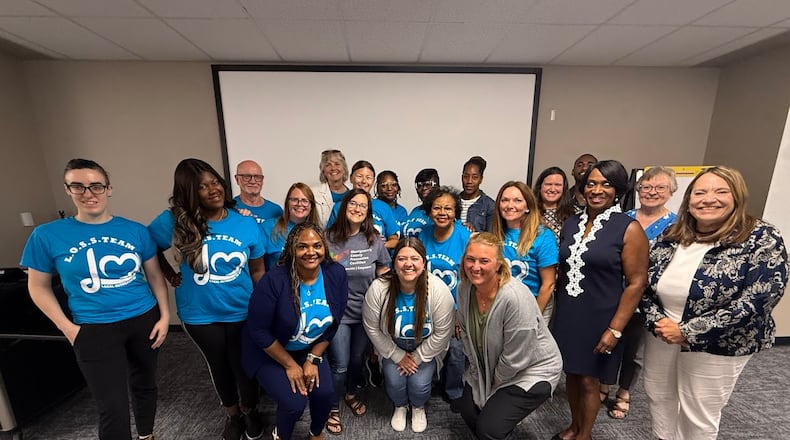One of those “right” things is an incredible partnership of mental health organizations, volunteers, law enforcement agencies, Coroner’s staff, and loss survivors. This group is called the Montgomery County L.O.S.S. (Local Outreach to Suicide Survivors) Team.
Someone that has lost a loved one to suicide is three times more likely to consider suicide themselves. Each suicide affects more than just the immediate family. On average, six family members and up to 135 people in the wider community may be impacted. This becomes a deadly spiral, where one loss creates another and another – a spiral that is difficult to stop. That’s where the L.O.S.S. Team comes in.
L.O.S.S. is an evidence-informed, national model where timely, compassionate support is given in the immediate aftermath of a suicide death. Here’s how it works: the responding law enforcement agency can dispatch the L.O.S.S. Team to the scene of a suicide death. This activates a two-person response team – at least one of whom has experienced their own loss to suicide. Those volunteers will support any survivor, including family members, friends, neighbors, or even unrelated witnesses. They will be with them to provide resources, validation, or a shoulder to cry on, while also allowing the law enforcement responders to work the scene uninterrupted. In the following days and weeks after the suicide, a L.O.S.S. Team member will follow up with additional resources, referral to a support group, and periodic check-ins.
There are times when an immediate dispatch is not possible. L.O.S.S. Team members can still provide a delayed response with the same level of support offered to those left behind.
After months of planning meetings, volunteer recruitment, and training, the Montgomery County L.O.S.S. Team held their official launch event on July 8. 22 active volunteers are currently available for activation. These are volunteers at the ready – day or night – to respond to the worst day of someone’s life.
After I share this story, the response I typically get is “How can I help?”. The answer is simple: volunteer. Volunteers can serve in various roles. We need people to answer law enforcement calls and dispatch volunteers. We need people to send cards, make phone calls, and send gift baskets after a death. Most importantly, we need people ready and willing to show up to a scene and support those who have lost a loved one. Montgomery County ADAMHS provides free training to these volunteers, with plenty of support throughout the process.
To learn more about how to volunteer, including a video where you can hear current volunteers’ stories, head to our website at https://www.mcadamhs.org/prevention/loss_team.php or email loss@mcadamhs.org for more information.
Together, we can bring hope to someone’s hardest days.
If you or a loved one is experiencing a mental health or substance use crisis- call, text or chat 988, 24/7, to be connected to a local crisis counselor.
Colleen Oakes is the Director of Communications and Strategic Initiatives at Montgomery County ADAMHS, mom of two, mental health enthusiast, Chicagoan turned Daytonian, and proud Dayton Flyer.
About the Author

